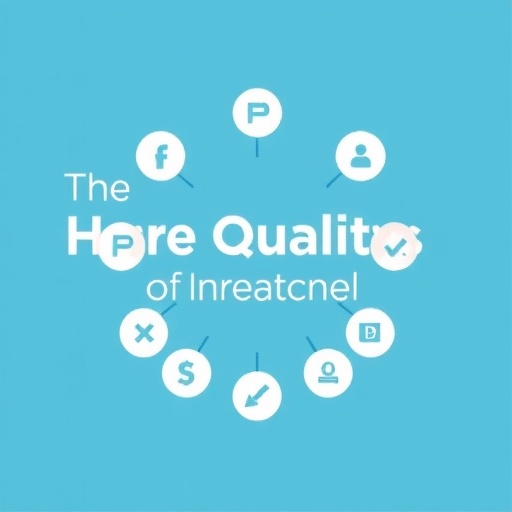In recent years, the healthcare sector has witnessed a paradigm shift towards lean management practices, emphasizing efficiency, waste reduction, and enhanced patient care. As healthcare organizations strive to improve performance and patient satisfaction, the integration of lean principles has become increasingly prevalent. A recent study, “Sustainable care quality improvement: a scoping literature review of performance measurement in lean healthcare implementations,” authored by Pozzan, Tiso, and Pamich, sheds critical light on the methodologies and outcomes associated with performance measurement in lean healthcare systems. This comprehensive review reveals both the potential benefits and challenges of implementing lean practices across diverse healthcare settings.
The study commences by framing the concept of lean healthcare, highlighting its origins in manufacturing and its subsequent adaptation to the complexities of healthcare delivery. The authors draw attention to the essential principles of lean, such as value creation from the patient’s perspective, the elimination of non-value-added activities, and the continuous pursuit of improvement. By aligning healthcare activities with these principles, organizations aim to enhance care quality while simultaneously reducing operational costs.
A particularly noteworthy aspect of the study is its emphasis on performance measurement, a critical component in assessing the effectiveness of lean implementations. The authors argue that establishing robust measurement frameworks is vital for organizations to monitor their progress, identify areas for improvement, and make data-driven decisions. Consequently, the synthesis of existing literature reveals a range of performance indicators adopted by healthcare organizations, including patient outcomes, efficiency metrics, and staff engagement levels.
One of the key findings of the literature review is the diversity of performance measurement approaches employed across different healthcare settings. It is evident that while some organizations prioritize quantitative metrics focused on operational efficiency, others adopt qualitative measures that consider patient and staff experiences. This divergence underscores the need for tailored performance measurement strategies that align with the specific goals of individual healthcare providers.
In their analysis, the authors also address the significance of leadership commitment and culture in the successful execution of lean initiatives. They contend that for lean practices to be sustainable, healthcare leaders must champion a culture of continuous improvement and empower staff at all levels to contribute ideas for enhancement. This transformational leadership approach not only fosters employee buy-in but also cultivates an environment conducive to innovation.
Moreover, the study highlights the role of interdisciplinary collaboration in the pursuit of sustainable care quality improvements. The successful integration of lean principles necessitates that diverse teams—including clinicians, administrative staff, and support personnel—work cohesively towards common objectives. The authors note that fostering a collaborative spirit enhances problem-solving capabilities, ultimately leading to improved patient care outcomes.
Despite the promising potential of lean healthcare implementations, the authors do not shy away from discussing the challenges that organizations may face during this transition. Resistance to change often emerges as a significant barrier, particularly in established healthcare environments where traditional practices have been long entrenched. Addressing this resistance requires strategic change management initiatives to facilitate a smooth transition towards lean practices.
Additionally, the review identifies gaps in the existing literature related to long-term sustainability and the impact of lean implementations on various healthcare contexts. While many studies highlight short-term improvements, there remains a need for longitudinal studies that evaluate the enduring effects of lean practices on care quality and organizational performance.
Another critical dimension explored in the review is the importance of training and education in instilling lean principles among healthcare staff. The authors emphasize that ongoing training fosters a comprehensive understanding of lean methodologies, equipping staff with the skills necessary to identify inefficiencies and propose improvements. By cultivating a culture of learning, organizations can enhance their capacity for continuous improvement.
The review also engages with the ethical considerations surrounding performance measurement in healthcare. The authors caution against an over-reliance on metrics that could inadvertently lead to compromised patient care. Balancing the pursuit of operational efficiency with the need to prioritize patient welfare is paramount, necessitating a nuanced approach in performance measurement frameworks.
Interestingly, the study concludes by proposing a need for future research that probes deeper into the intersection of lean healthcare and digital transformation. The authors speculate on the potential synergies that may emerge when innovative technologies, such as artificial intelligence and data analytics, are harnessed alongside lean principles. Such advancements could empower healthcare organizations to enhance their performance measurement capabilities, ultimately driving more substantial improvements in care delivery.
As the healthcare landscape continues to evolve, the insights derived from Pozzan and colleagues’ literature review provide instrumental guidance for organizations aiming to adopt lean practices. The synthesis of diverse performance measurement strategies, grounded in a commitment to quality, collaboration, and continuous learning, forms the bedrock upon which successful lean healthcare transformations can be built.
In conclusion, the study underscores the imperative for healthcare organizations to embrace lean methodologies with a holistic perspective that encompasses rigorous performance measurement, cultural change, and interprofessional collaboration. Engaging with these principles positions healthcare organizations to navigate the complexities of modern care delivery while ensuring sustained improvements in patient outcomes and operational efficiency.
In an era where the demand for high-quality healthcare is juxtaposed with the pressures of cost containment, the principles elucidated in this scoping literature review could serve as a critical guide for future innovations in healthcare delivery. By leveraging the findings and recommendations articulated by Pozzan and colleagues, healthcare leaders can embark on transformative journeys that align operational excellence with their overarching mission to deliver superior patient care.
Subject of Research: Performance measurement in lean healthcare implementations
Article Title: Sustainable care quality improvement: a scoping literature review of performance measurement in lean healthcare implementations
Article References: Pozzan, C., Tiso, A., Pamich, C. et al. Sustainable care quality improvement: a scoping literature review of performance measurement in lean healthcare implementations. BMC Health Serv Res 25, 1452 (2025). https://doi.org/10.1186/s12913-025-13598-5
Image Credits: AI Generated
DOI: https://doi.org/10.1186/s12913-025-13598-5
Keywords: Lean healthcare, performance measurement, quality improvement, operational efficiency, patient outcomes, healthcare management, continuous improvement, organizational change, interdisciplinary collaboration.




